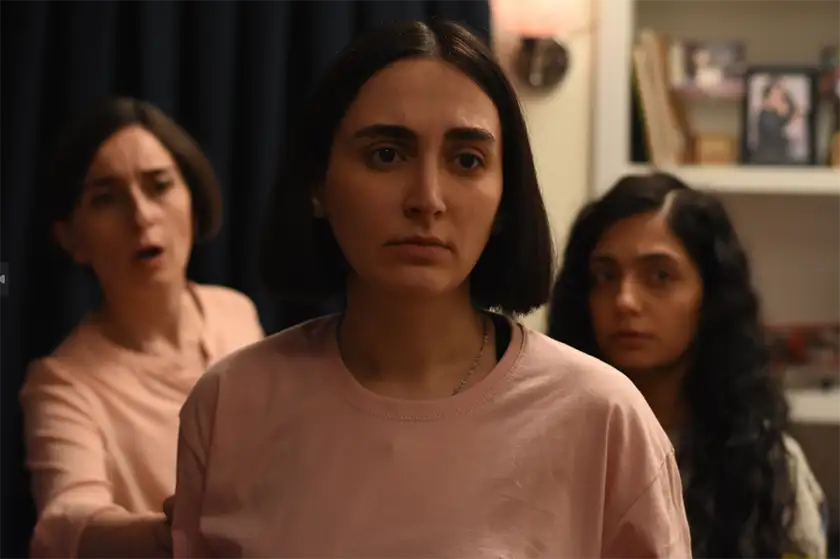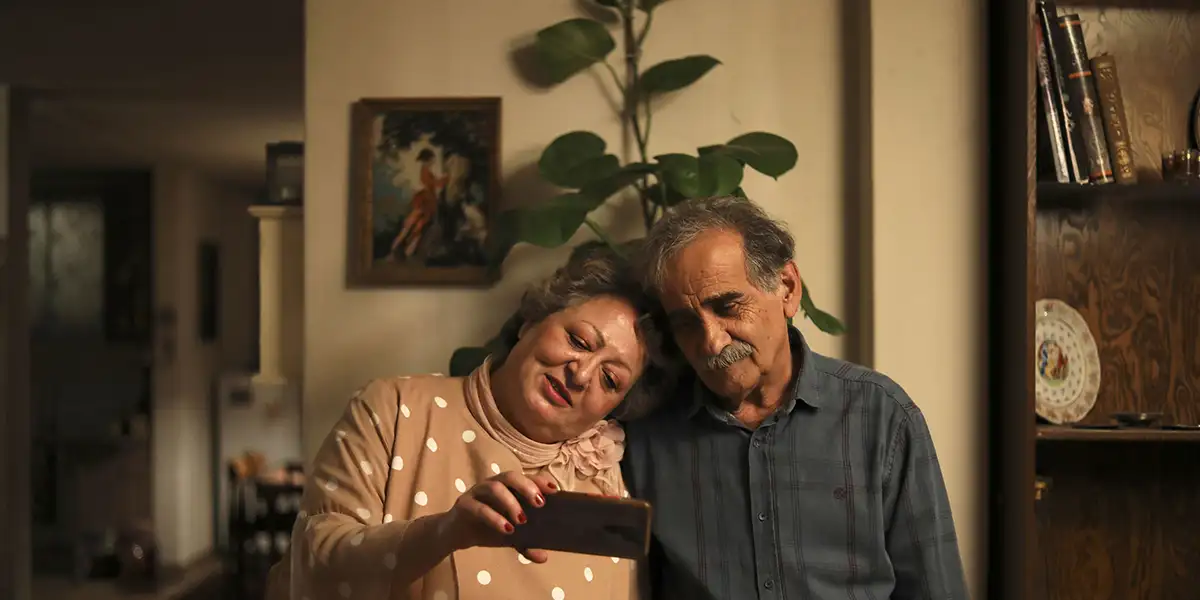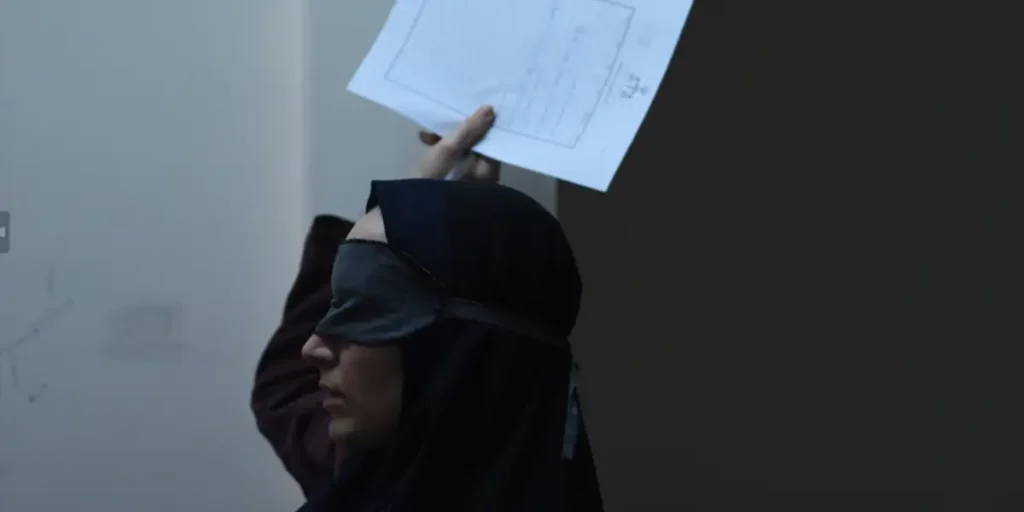Mohammad Rasoulof’s latest film, The Seed of the Sacred Fig is an impressive work of the utmost importance.
Director: Mohammad Rasoulof
Genre: Drama
Run Time: 168′
Cannes Premiere: May 24, 2024
Release Date: TBA
On May 24, 2024, Mohammad Rasolouf attended the premiere of The Seed of the Sacred Fig at the Cannes Film Festival. It isn’t normally unusual for a director to attend the world premiere of their latest movie, and yet, in this case, it is nothing short of a miracle.
Just a few weeks before the film was announced to premiere in Cannes, Rasolouf was sentenced to eight years in prison, flogging, a fine, and confiscation of his property for propaganda against the regime, due to him making this film. Rasolouf and other crew members managed to flee from Iran in a long and complicated journey that led them to safety in Europe.
The director’s story alone sounds like the plot of a movie itself, but The Seed of the Sacred Fig focuses on another not-so-dissimilar reality of Iran’s misogyny and theocracy. The film’s narrative centres on Iman (Missagh Zareh), an honest lawyer who gets appointed as an investigating judge in the Revolutionary Court in Tehran. His new position puts him and his family in danger, so Iman is given a gun. As nationwide political unrest spreads in Iran and his gun goes missing in the house, Iman is taken by paranoia and mistrust against his own family, made up of his wife Najmeh (Soheila Golestani) and his two more liberal and feminist daughters Sana (Setareh Maleki) and Rezvan (Mahsa Rostami).
The family dynamic is exciting to watch on the screen as it parallels the tension running rampant in Iran. In The Seed of the Sacred Fig, the plot’s tensions are both internal to the family’s conflict, and external, with a government and state that restricts every single one of the main characters in one way or another. The main conflict is born as they each react differently to the external pressure of whether to confirm or fight, with the added threat of having a gun missing in the house. As tensions rise, both within the family and with the demonstration against compulsory hijab in the country, we see various approaches change in the family due to generational, gender, and personality differences.

The whole story of The Seed of the Sacred Fig unfolds against the important and essential backdrop of Iran’s current political reality, and, eventually, the widespread demonstrations in schools and universities, which become an important turning point in the characters’ story too. Rasolouf does not only use this important political element as a plot device but actually shows us what political unrest looks like. As Sana and Rezvan speak about the protests in whispers in their own home and watch videos of the demonstration on their phones, we also get to see real footage of the recent protests in Iran.
The videos are disturbing and uncomfortable, showing police brutality, and people bleeding and being beaten up. Rasolouf is not afraid to show what life looks like in Iran; he escaped the country’s censorship and control and risked his own freedom to do so. The inclusion of these videos – often shaky, short, and in a vertical phone format – might not be an aesthetically pleasing choice, but it is a powerful one that speaks to the reality and necessity of a film like The Seed of the Sacred Fig, giving these segments the feel and relevance of a documentary.
This real-life footage stands in stark contrast with the rest of the film which, on the contrary, presents a curated aesthetic with stunning cinematography and delicate use of lighting to showcase its beautiful settings both in Tehran and outside the city. The visual style of the film pairs really well with the brilliant acting by all the talent involved, who bring their best game to tell this story, making us truly believe in what we see on screen and root for these characters as the story goes on. But it just functions as a powerful reminder that sometimes reality does not look beautiful, nor should it, when the filmmaking medium is used to denounce such urgent and important matters.
The final act takes an unexpected turn that, at the same time, feels incredibly organic to the whole story. By the time the film ends, we quickly realise that this story has always led to this conclusion, which seems both inevitable and necessary. As The Seed of the Sacred Fig takes its narrative to a visually fascinating and maze-like setting outside of the city, the stakes are heightened to an entirely new level. As the characters spiral into a more desperate version of themselves – with Iman becoming the metaphor for the theocratic state he was destined to be since the very beginning of the film – this tense family drama quickly becomes a matter of life and death.
The Seed of the Sacred Fig is a powerful reminder of the revolutionary power of filmmaking in a world that so desperately needs it, with the current political situation both in Iran and everywhere around the world. The film immediately became my favourite of the entire festival for its political message and beautiful cinematography, and it looks like the jury agreed with me, as the movie later won the Special Prize award at the closing ceremony. But does a competition even matter at all, when a movie is this powerful and important to today’s political reality?
The Seed of the Sacred Fig premiered at the Cannes Film Festival on May 24, 2024.

 loudandclearreviews.com
loudandclearreviews.com
